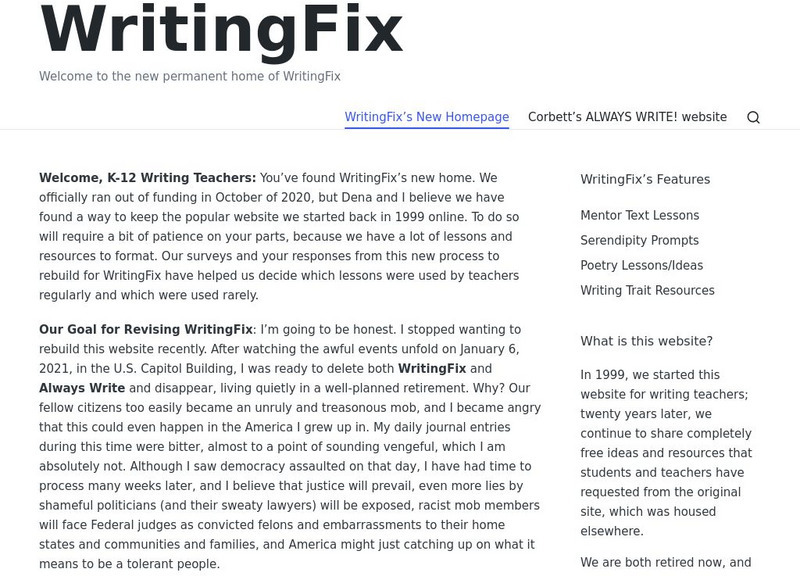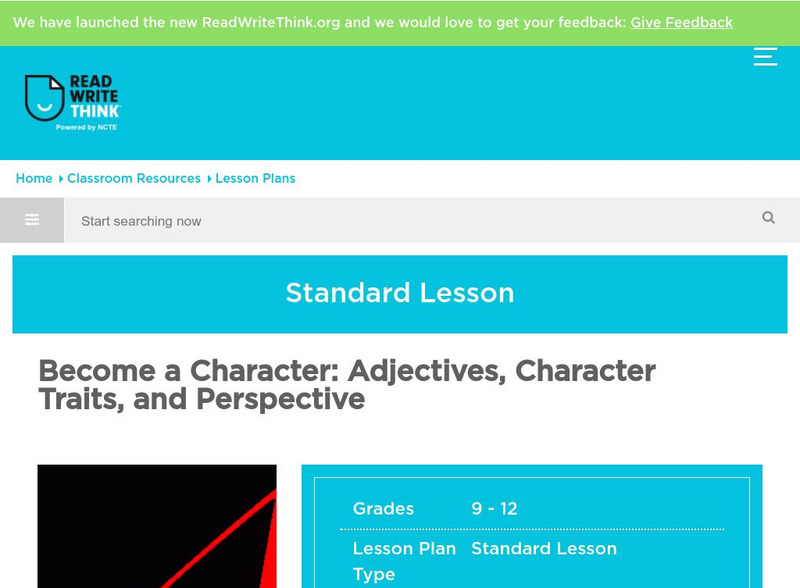Beacon Learning Center
Beacon Learning Center: Setting: Not Just the Time and Place
This is a tutorial focusing on setting including time, place, deeper meanings, multiple settings, etc. Shakespeare's Romeo acts as the guide. RL.11-12.3 Auth choice story elem
Writing Fix
Writing Fix: Actions Speak Louder Than Words
After hearing and discussing an excerpt from Sharon Creech's Walk Two Moons, young scholars will plan to create a unique description of a character that uses memorable actions that "show" a person's character. They will brainstorm verbs...
ReadWriteThink
Read Write Think: Unlocking Symbolism/themes in Drama
Online lesson which uses Hansberry's "Raisin in the Sun" to teach the concepts of symbolism and theme in a dramatic work. Students learn the importance and significance of these terms as they study this work and other works of drama....
ReadWriteThink
Read Write Think: Become a Character
In this online lesson and activity, students actually "become" a character from a novel in their analysis of characterization. The lesson uses the Scarlet Letter, but any novel can be used. RL.9-10.3 Analyzing Characters, RL.11-12.3 Auth...
Sophia Learning
Sophia: Background vs. Integral Setting
This lesson compares background (settings that do not affect the story) and integral settings (the story depends on the setting to make sense).
Other
Mantex: Tutorials: What Is Close Reading?
This site discusses the four types of reading: Linguistic, Semantic, Structural, and Cultural and offers a detailed example of close reading. RL.11-12.3 Auth choice story elem, RL.11-12.5 Choice of Text Structure
Sophia Learning
Sophia: Indirect vs. Direct Characterization
This lesson introduces indirect (learn about the characters through speech, thoughts, actions, physical description, other character's feelings) and direct characterization (author tells the reader about the character) in fiction...






